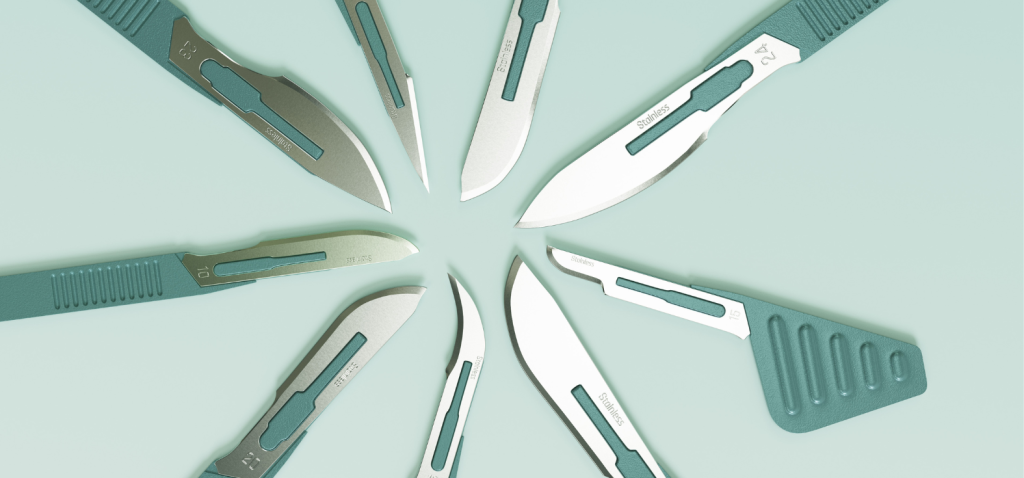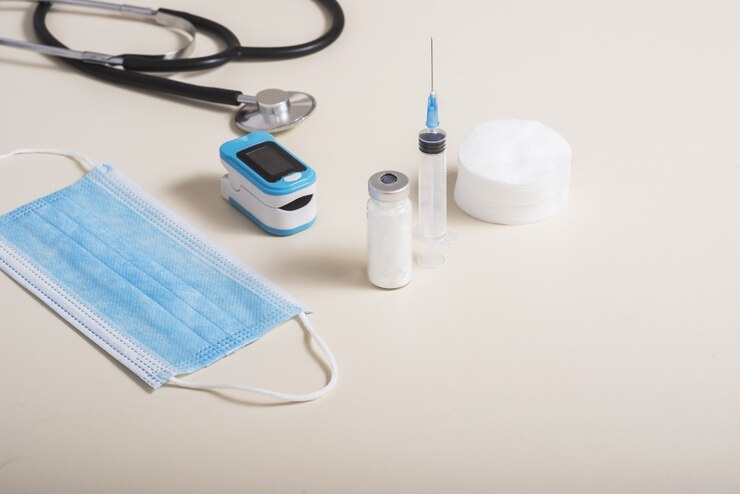When it comes to precision in healthcare, no tool is more trusted than the surgical scalpel knife. This small yet essential instrument is a mainstay in operating rooms, clinics, and laboratories. Known for its sharp blade and lightweight handle, it allows medical professionals to make clean, accurate cuts with minimal tissue damage. While it may look simple, the scalpel is one of the most important tools in the medical field.
From complex surgeries to basic medical procedures, the surgical scalpel knife plays a key role in patient care. Its design ensures controlled movements, giving surgeons and healthcare workers the accuracy they need for delicate tasks.
Let’s explore the most common uses of this tool in healthcare and why it remains an irreplaceable part of medical practice.

1. Surgical Procedures:
This tool represents the most basic form of surgical instrument: an incision knife specifically designed for surgical purposes. By virtue of its sharp, thin blade, it is manipulated with a variety of precise incisions in the operating theatre for all manners of surgical procedures-from heart surgery to organ transplant. The extremely sharp blade ensured that clean incisions were made, with the utmost sort of trauma to adjacent tissues, which in turn opens a chance for quick healing of the patient.
- Surgeons use the surgical knife to make incisions that are precise and clean into the skin, muscles, and organs.
- A blade kept sharp reduces trauma to surrounding tissue, which helps in faster healing of the patient and reduces the risk of infections.
- These may range from heart surgery to organ transplants or orthopaedics.
2. Minor Surgical Interventions:
Not all surgeries are big operations. The Scalpel knife set for hospitals is also used for smaller interventions, such as removing moles, cysts, or small tumours. In dermatology, it is used to excise skin lesions with precision and minimal scarring.
3. Emergency Medical Care:
Life theft requires quick actions and precision. Such precision instruments are kept by paramedics and ERs with hospitals or with their first-aid kits to relieve pressure on wounds or make small incisions to open blocked airways.
- Scalpel knife for surgery are in the emergency room and ambulance.
- They help doctors to relieve pressure from wounds, drain abscesses, or create small incisions to clear blocked airways.
- Precision must be exerted during emergencies so that the condition of the patient does not worsen and so that the patient is stabilised as fast as possible.
4. Dissection and Anatomy Studies:
Within medical schools and research laboratories, scalpel knives are used for dissections to facilitate in-depth studies of anatomy by students and researchers. This is to aid future practitioners in grasping the human body and understanding the nature of actual surgical procedures.
5. Biopsy Taking:
A biopsy usually consists of removing a small sample of tissue for a test. A surgical scalpel knife ensures that the sample is taken with precision, this being very important for an accurate diagnosis. Usually, this is done in the detection of cancers or other serious illnesses.
- A scalpel removes a small tissue sample for lab testing.
- Doctors can examine the sample to detect cancers or other diseases.
- A precise incision ensures the sample is usable and reduces risk to the patient.
6. Veterinary Medicine:
The precision of the scalpel is equally important in veterinary medicine, where it is commonly engaged in animal surgeries and treatments, thus laying a firm basis for the safeguard of animals and their condition.
7. Autopsy and Forensic Work
In forensic science, during autopsies, this tool is invaluable to forensics. It allows them to inspect tissue, organ, or wound to find out the causes of death. This accuracy allows for detailed and trustworthy findings.
- Pathologists use scalpels to examine tissues, organs, and wounds during autopsies.
- The tool allows careful removal and inspection of specific samples.
- Forensic experts rely on accuracy to determine the cause of death or investigate crimes.
Why Precision Matters in Healthcare Tools
Precise champagne cuts promote better healing and reduce the likelihood of infection and scarring. Hence, surgical scissors were built with these factors in mind and are one of the most trusted tools in healthcare.
Conclusion
After the surgical scalpel knife, just a word binds, this can into the formation stage of health’s biggest. While medicine-saving surgery and simple medical treatment for the same level of work and precision that doctors need, every time the knife is used! Had it not been for the existence of it in those times, we would probably not be enjoying many advances in modern medicine.
Are you looking for place where you can buy qualitable healthcare products? Livingstone International offers scalpel knife set of high quality to hospitals with excellent sharpness, durability, and comfort for professional use. Our carbon steel surgical scalpel blades are made for precision so that they may be used for any medical and surgical purpose. Buy now!




